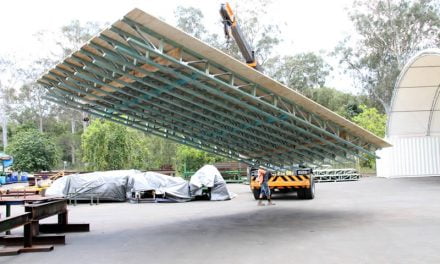Legislative requirements for agreements have changed significantly over time, but the concept has remained important.
Why would you go to the trouble of making an Enterprise Agreement (EA) when, for example, you have the option of making Individual Flexibility Agreements (IFAs) already in the award? What are the benefits to the business of having an EA?
ENTERPRISE AGREEMENT VS INDIVIDUAL FLEXIBILITY AGREEMENT
I’ve previously written about making IFAs. All modern awards contain provisions allowing an employer and an individual employee to agree on certain matters, provided the correct process is followed.
IFAs do not require the approval of an external body to be enforceable, while EAs cannot be used in the workplace until they have been approved by the Fair Work Commission. However, in both cases, the employee must be better off overall under the agreement, compared to the award.
However, for an IFA, the person responsible for assessing whether the employee is better off overall is the employer – which can be tested in court at a later date. With an EA, the Commission will test whether employees are better off at the time the agreement is approved, meaning there is more certainty for employers with an EA compared to an IFA.
Another difference is that IFAs can only be made about a limited range of topics; arrangements for when work is performed, overtime rates, penalty rates, allowances, and leave loading.
EAs can be made about any matter relating to the employment relationship. In fact, when an EA is operating, it completely overrides the underpinning modern award – so any award entitlement that is not mentioned in the EA is no longer applicable.
WHICH AGREEMENT PROVIDES THE EMPLOYER WITH MORE CERTAINTY?
Either party can terminate an IFA with 13 weeks notice, or four weeks notice (if the IFA was made before December 2013).
Say, for example, you have made an IFA with an employee that allows for payment of a flat rate of pay that has been designed to incorporate a certain amount of overtime. If the employee decides later that they would prefer to be paid overtime penalties in accordance with the award, then all they have to do is give you 13 weeks notice.
On the other hand, once an EA has been approved by the Fair Work Commission, it is the enforceable document until it is terminated by an order of the Commission, or replaced by another EA.
WHICH TYPE OF AGREEMENT IS BEST?
If you wish to use IFAs, then you must make a new IFA with each employee individually. It is not lawful to make ‘getting the job’ based on the IFA, before an individual is even employed.
So you would need to be careful when and how an IFA is offered, and that the employee must always have the option of choosing to remain on award entitlements.
Any departures from the procedure in the award would be a breach, and could leave the employer open to prosecution.
The process for making an EA is also strictly controlled. There are specific time frames, notices to be given out, and rules about ‘good faith’ bargaining and voting. Get any of those wrong, and the Fair Work Commission won’t approve your agreement.
You only do it once, assuming the agreement is approved both by a majority of employees and the Fair Work Commission. An additional benefit is that all employees, whether they voted for the agreement or not (regardless of if they were employed at the time of the vote), are covered by the agreement. Administratively, this is much simpler!
Another benefit of EAs is that if you have employees covered by several awards, making an EA for your entire workforce will make it much simpler for your payroll staff to work out their entitlements.
ANY OTHER DIFFERENCES?
One consideration for employees is that industrial action cannot be taken while an EA is operating before it has reached its expiry date. All EAs have an expiry date of up to four years after it was approved.
Once an EA has passed its expiry date, it continues to be legally enforceable in the workplace. However, if they follow the correct procedures, employees may take industrial action in pursuit of a new EA after the expiry date.
The prohibition against taking industrial action does not apply to employees who make an IFA.
BUT WHAT’S THE KEY QUESTION FOR EITHER TYPE OF AGREEMENT?
The first question you need to ask yourself, regardless of the type of the agreement, is “What’s wrong with the way the award works in my organisation?”
The answer to this question will give you the reason for any type of agreement.
You would want to be sure that any type of agreement would enhance flexibility or productivity through a tailored set of working arrangements that aligns remuneration and reward to the enterprise-specific structures.
If neither an IFA nor an EA will give you this outcome, then why are you considering making an agreement?
Emma Watt is an independent industrial relations consultant with almost 20 years’ experience in the timber industry.
Phone: 0411 708 073 or Email: emma@emmawatt.com.au










